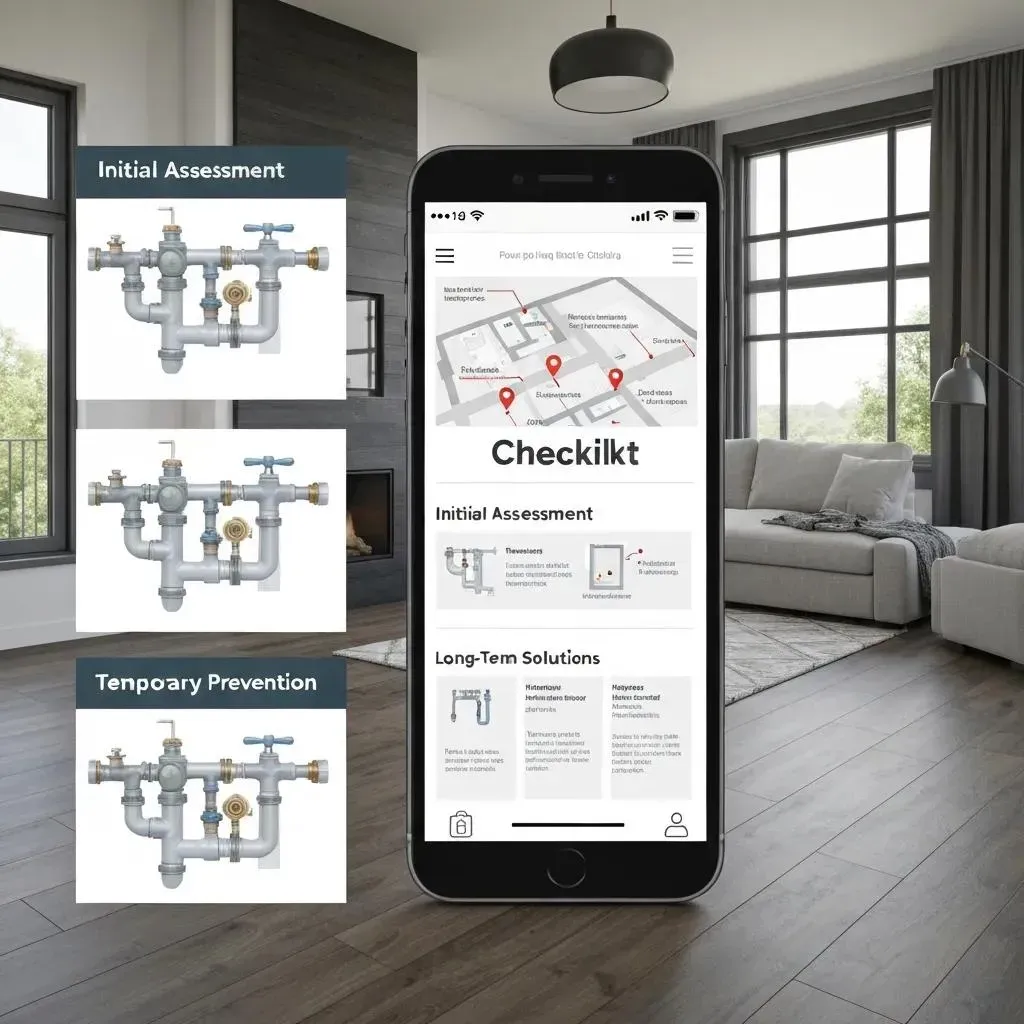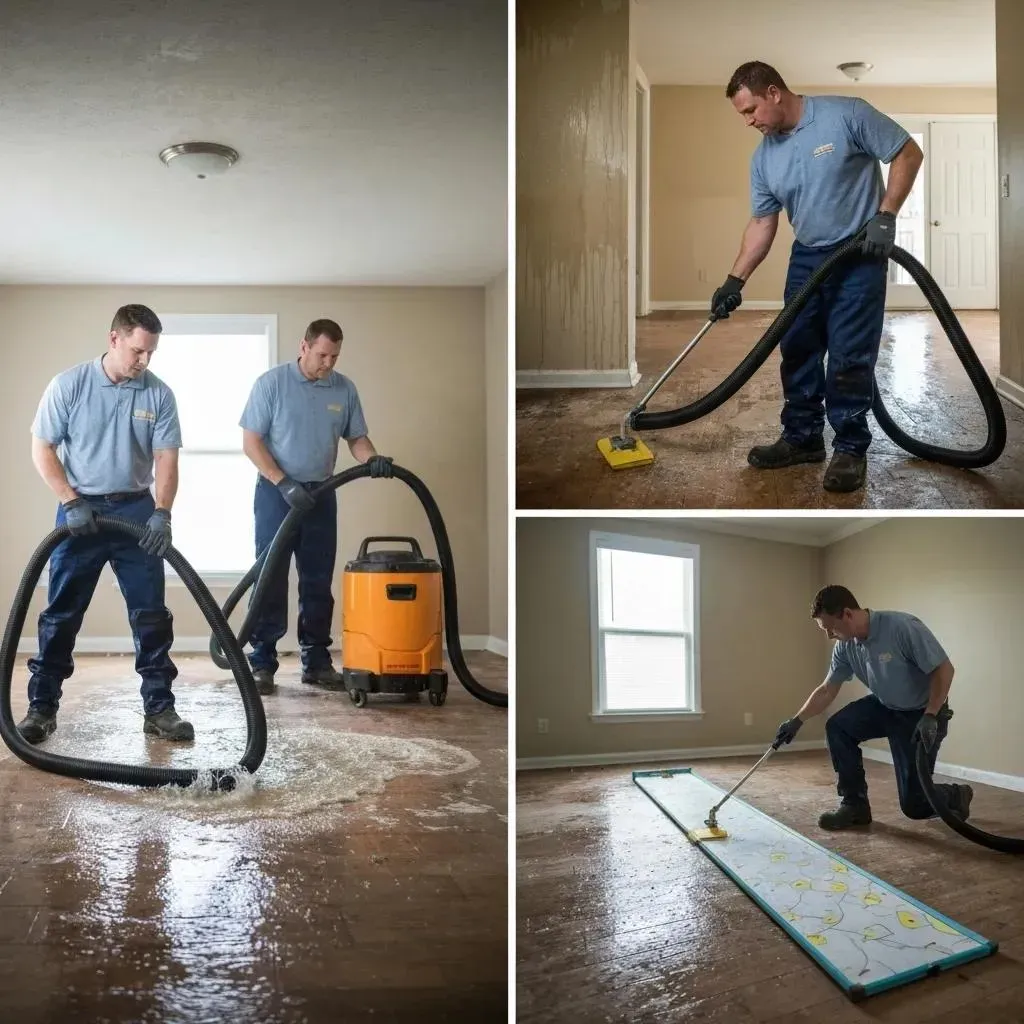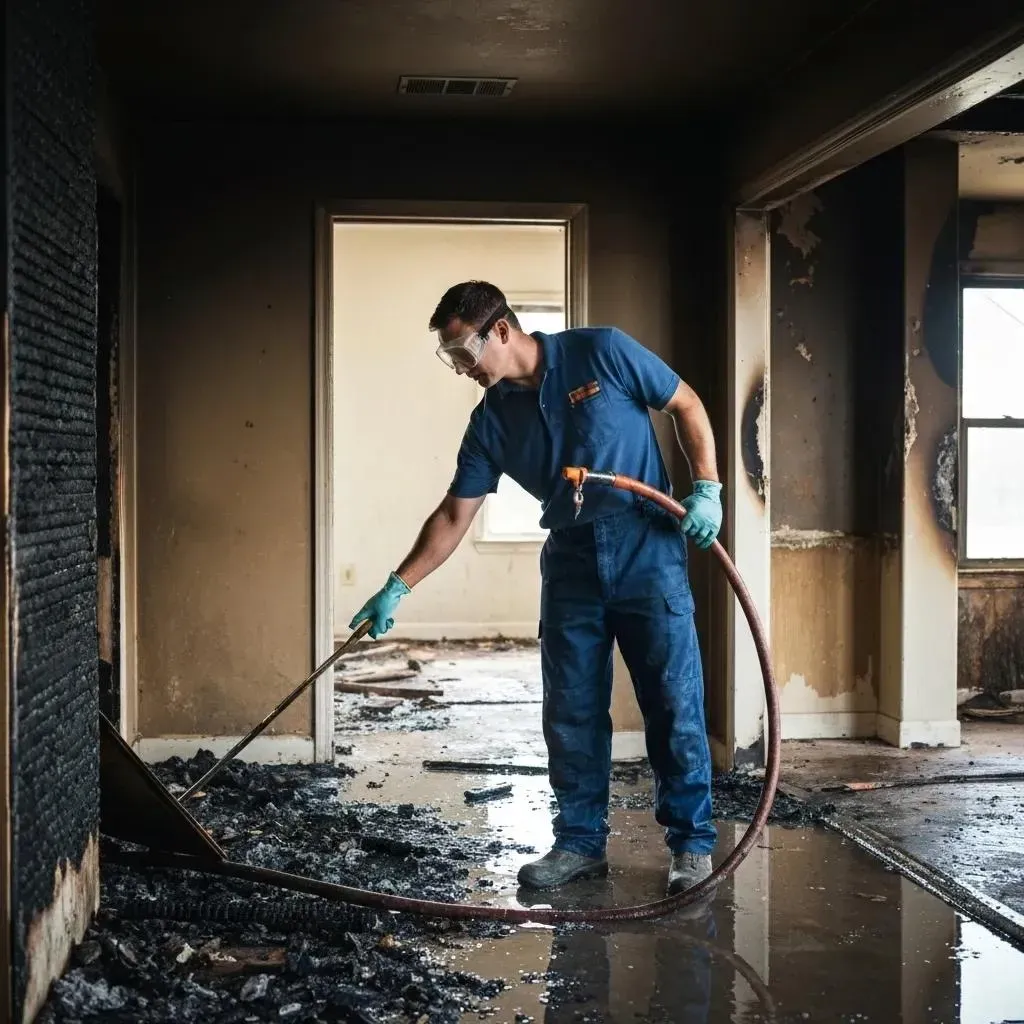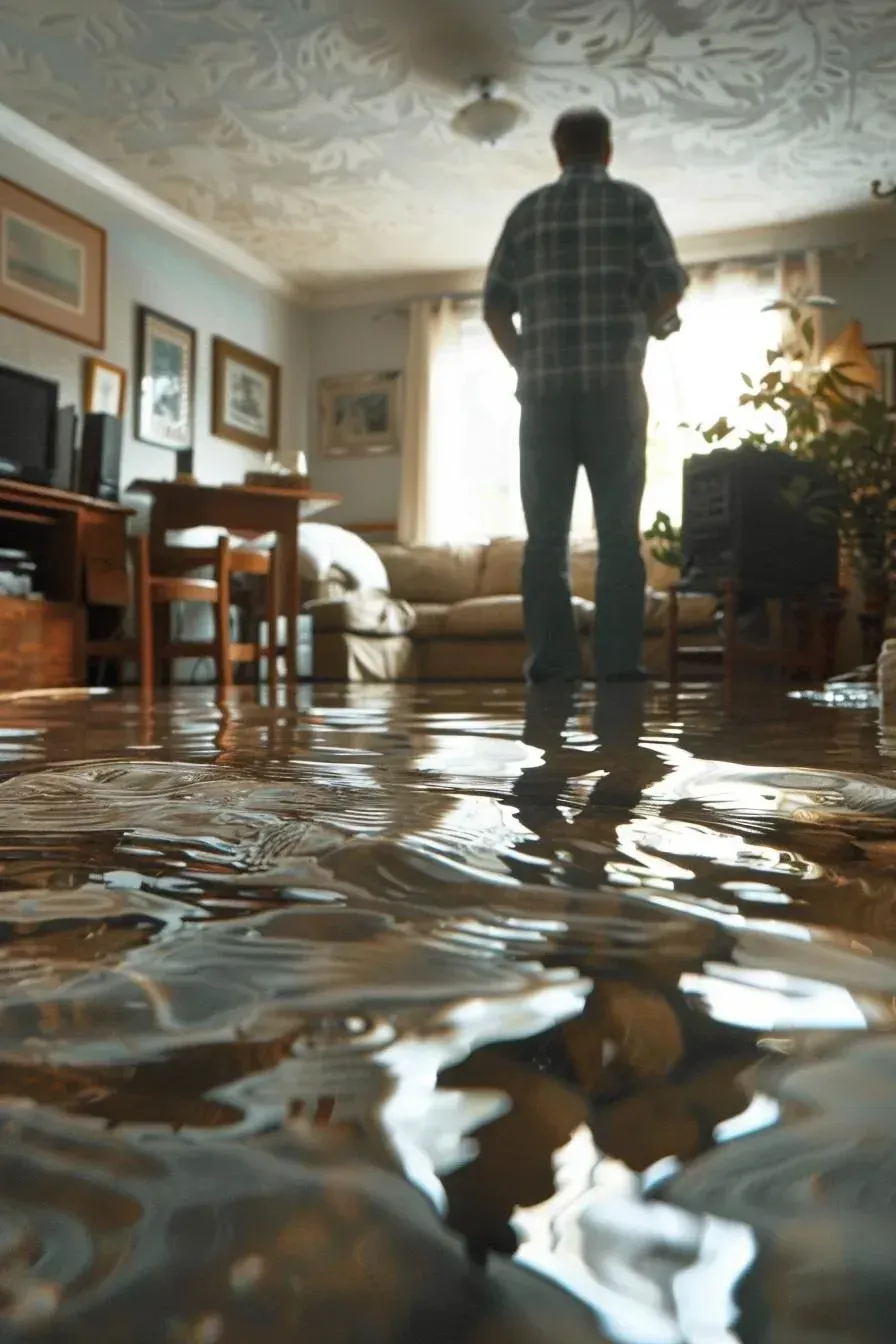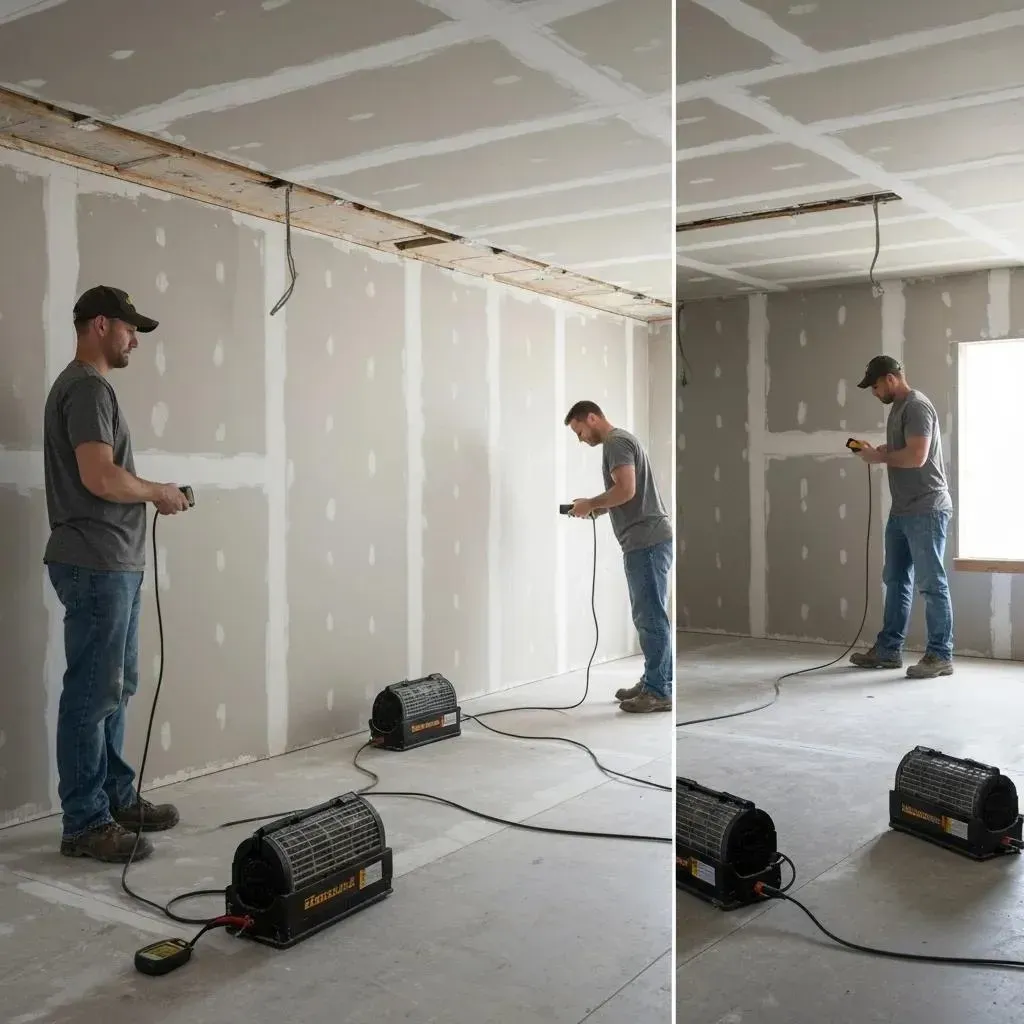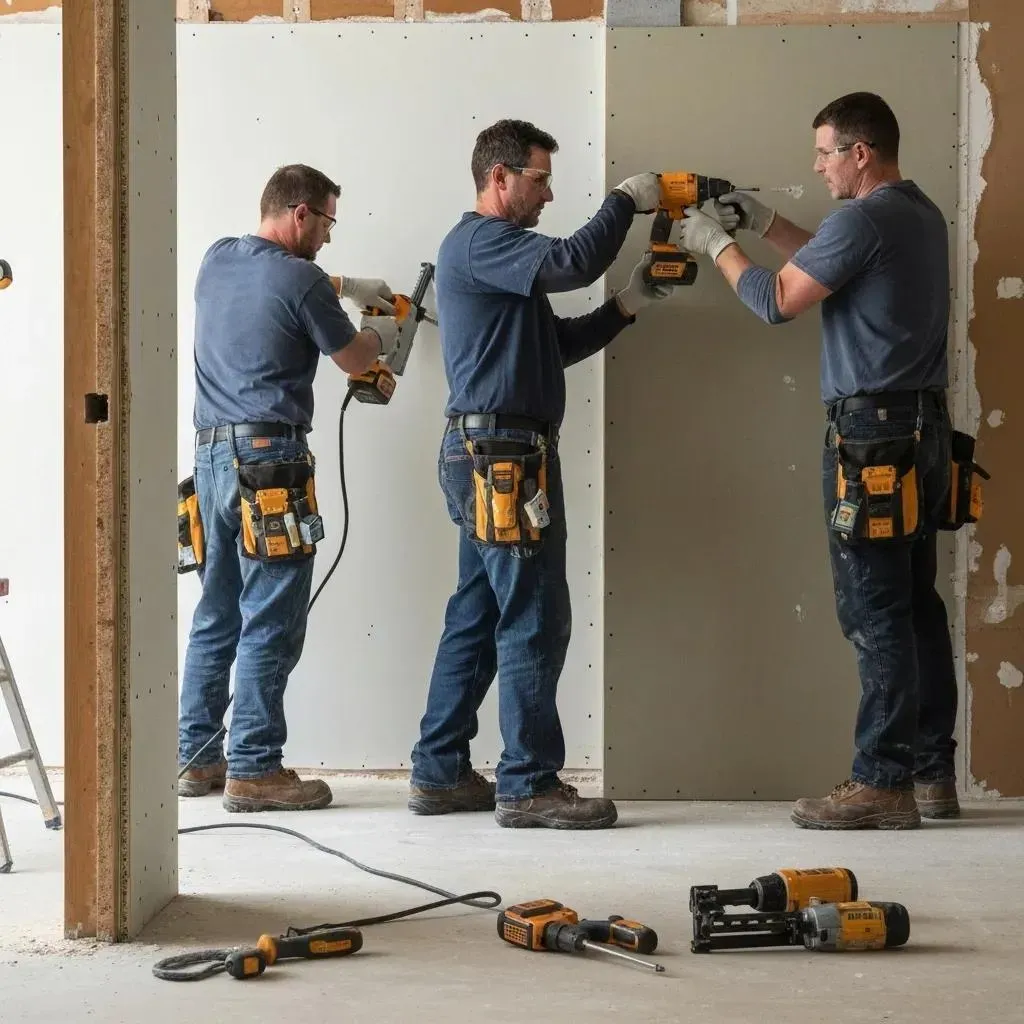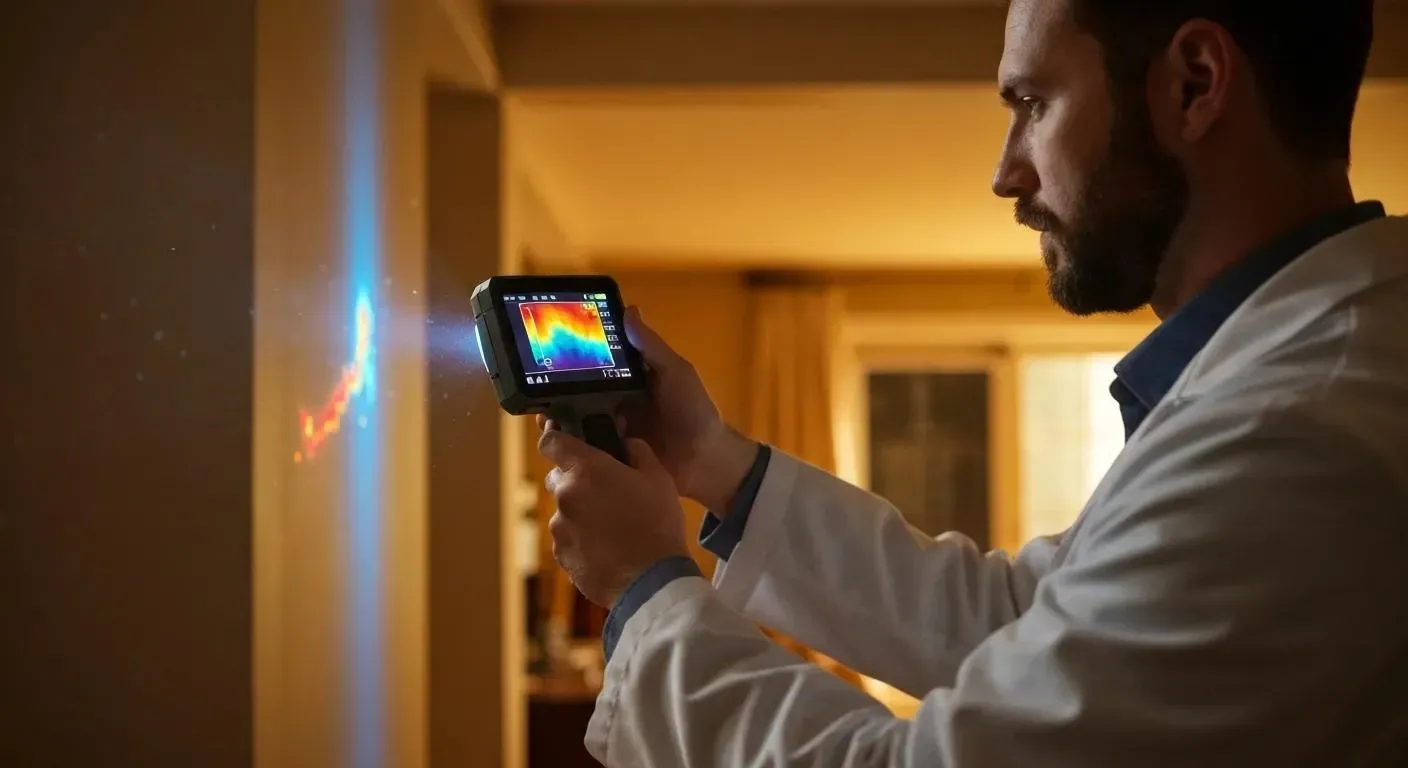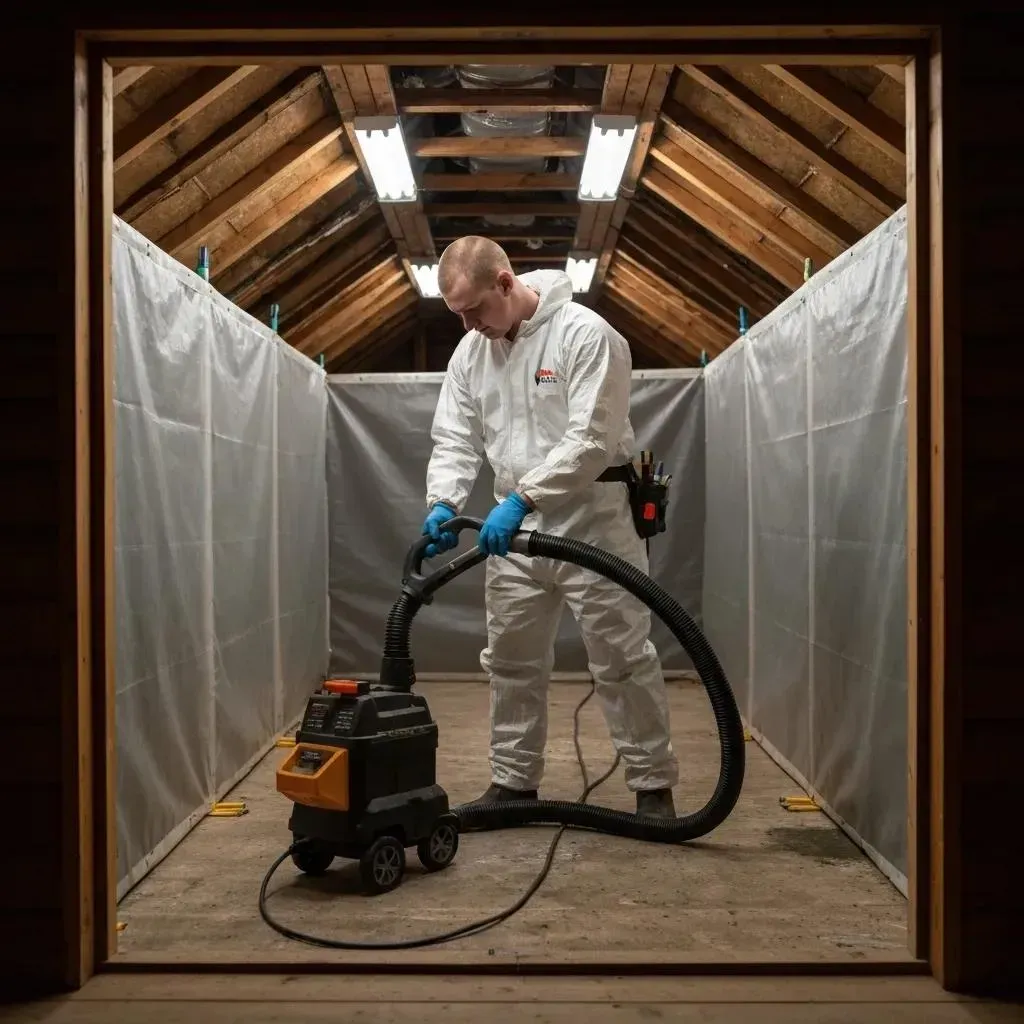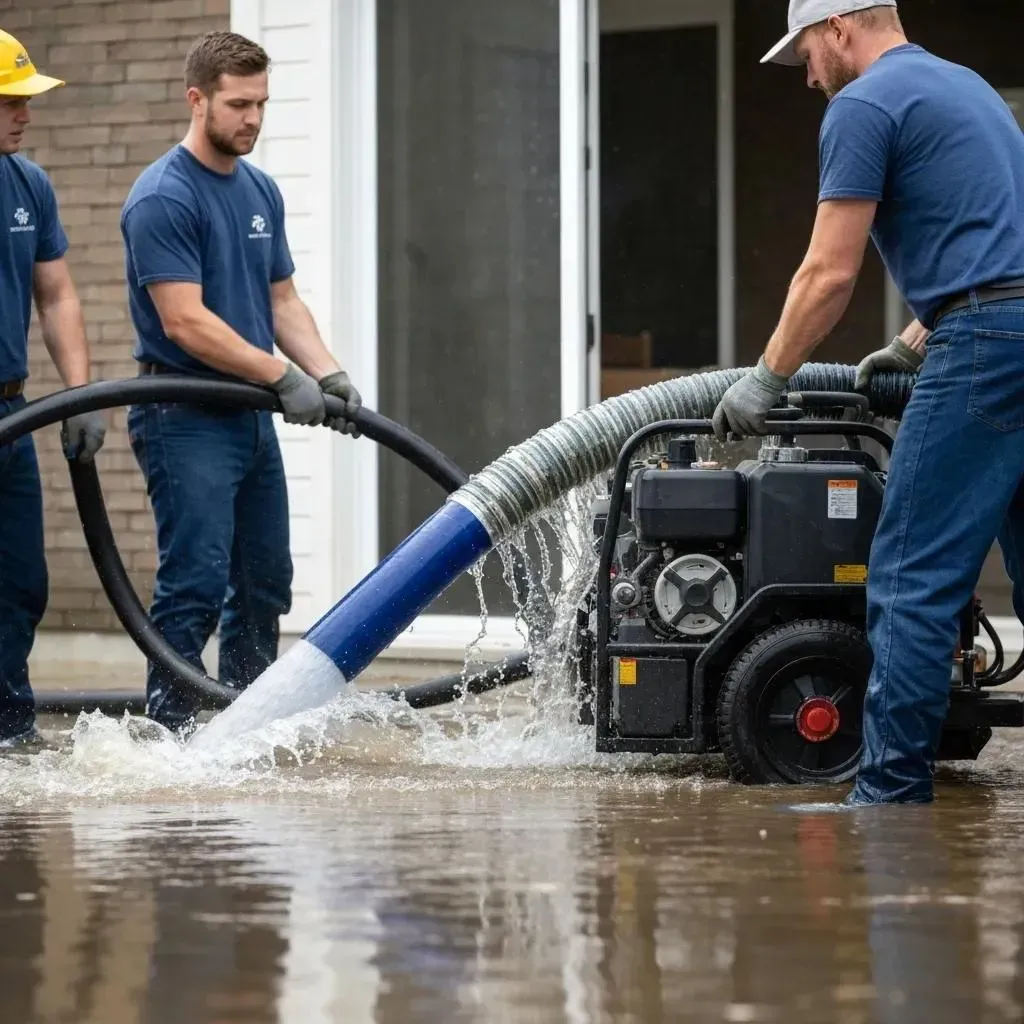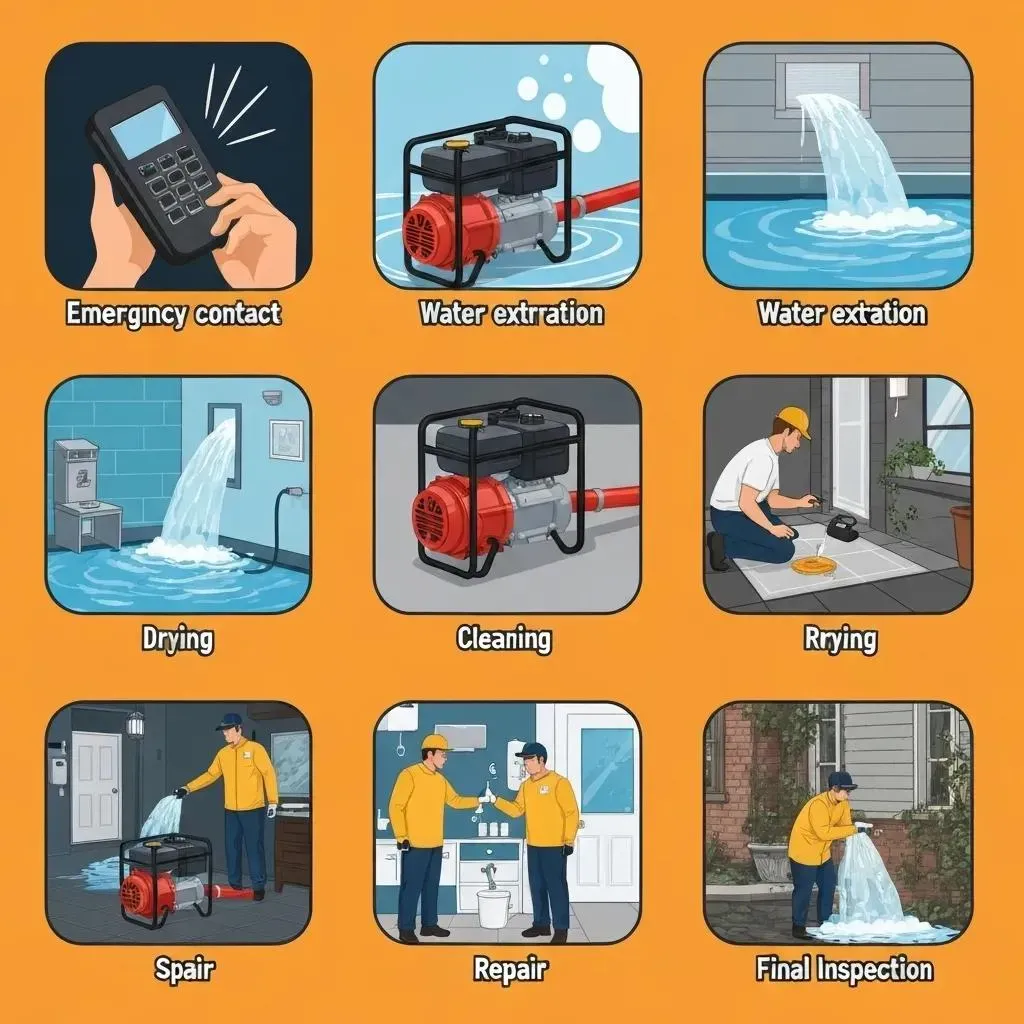Blog
Why a Drip Demands Your Immediate Attention
Need to address a water leak quickly? Here's what you need to know:
- Immediate Action: Turn off your home's main water supply.
- Containment: Collect leaking water and protect nearby items.
- Temporary Fix: Consider a short-term patch if safe to do so.
- Professional Help: Always call a plumber for a permanent, safe repair.
A water leak repair might seem minor, but it can quickly become a major problem for your Denver home. The high pressure in pipes means a small drip can escalate into a flood, causing rapid and costly damage. Unattended leaks lead to hidden issues that compromise your home's safety and value.
I'm Mike Martinez, owner of Accountable Home Services. My team and I are experts in precise water leak repair and restoration, and we've seen how destructive even small leaks can be.
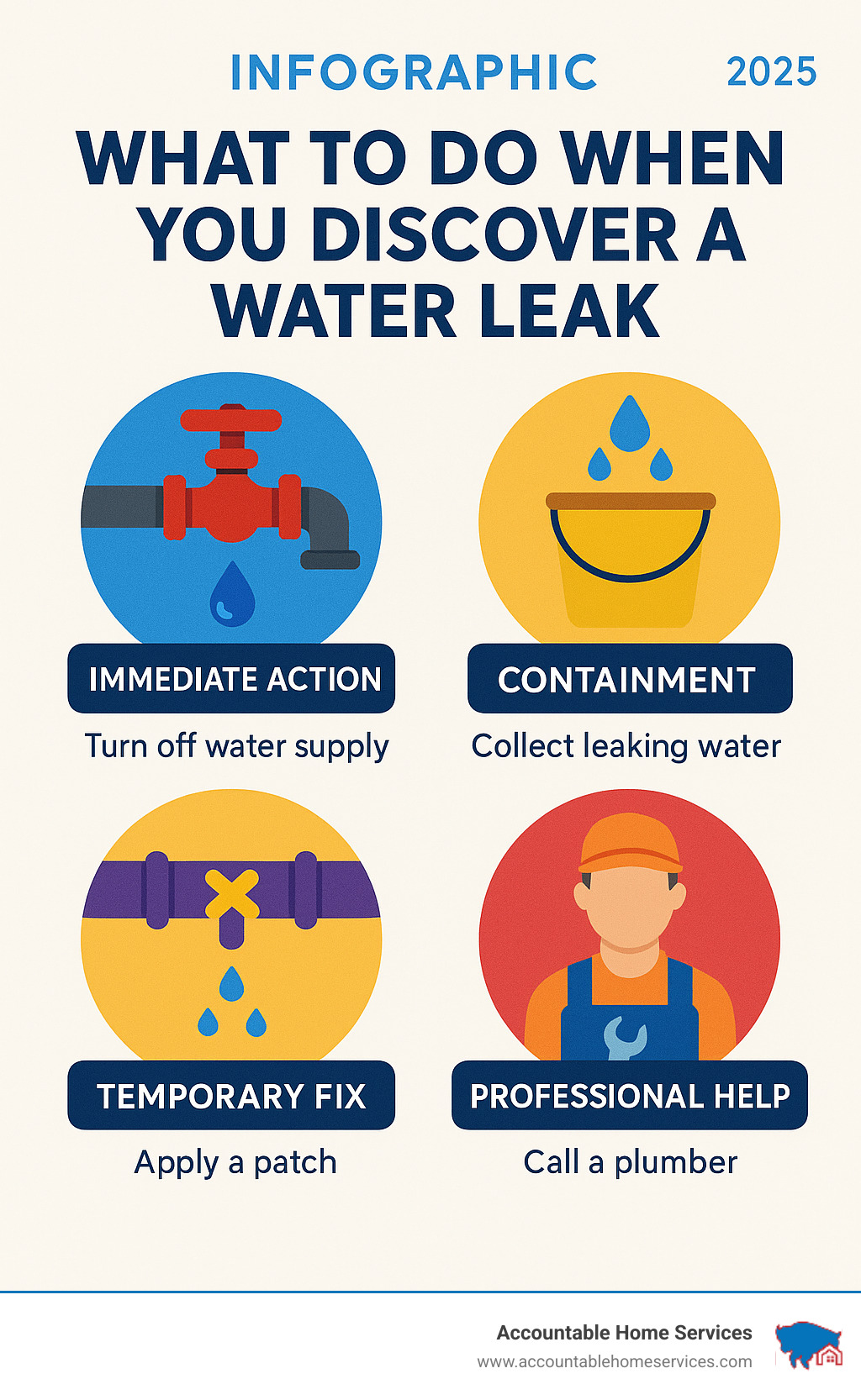
In the Denver Metro Area, we see water damage manifest in several ways, all detrimental to your home and health:
- Structural Damage: Water weakens your home's framework. Wood framing and subflooring can rot and warp, compromising stability and leading to dangerous structural failures.
- Drywall and Wood Rot: Drywall absorbs water like a sponge, causing it to swell, crumble, and fail. Wooden elements like floor joists and wall studs are also highly susceptible to rot, which spreads quickly and requires costly replacement.
- Mold Growth: A hidden leak creates the perfect moist environment for mold to thrive, often within 24-48 hours. Mold causes musty odors and can trigger serious allergies and respiratory problems.
- Electrical Hazards: Water near wiring or outlets is a severe risk, potentially causing short circuits, fires, or electrocution. Always turn off electricity in affected areas.
- High Water Bills: A slow, hidden leak can waste hundreds of gallons of water, leading to a sudden spike in your utility bills.
- Basement Flooding: Basements can flood in minutes from a burst pipe, causing extensive damage to belongings, foundations, and finished spaces.
Leaving a water leak repair unresolved turns a small fix into a major restoration project. For more details on how water can damage your home, explore our guide on More info about home water damage repair. It's also crucial to understand the source of the water, which you can read about here: Understanding Plumbing Leaks vs. Other Water Damage Sources.
Playing Detective: How to Uncover Hidden Water Leaks
Think you'd know if your home had a water leak repair issue? The sneakiest leaks are often invisible, causing damage behind walls or under floors. Becoming a good leak detective is one of the best investments you can make in your home's future.
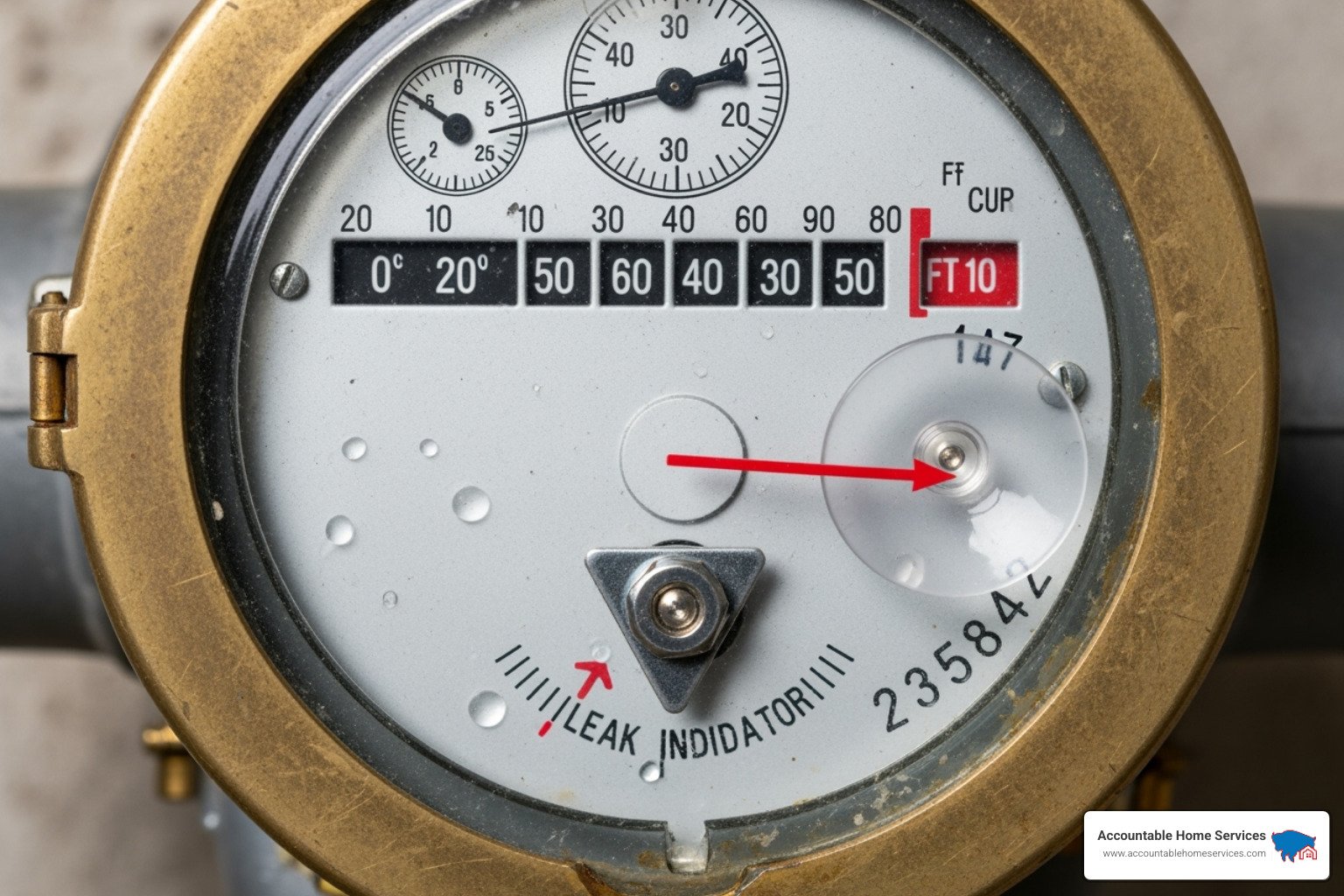
Some leaks are obvious, like puddles on the floor, the constant drip, drip, drip sound, or growing water stains on ceilings and walls. But the real troublemakers are more subtle:
- Musty Smells: A persistent damp or musty odor, especially in a basement, often points to hidden mold and moisture.
- Peeling Paint or Wallpaper: Water seeping through walls can cause paint to bubble and wallpaper to lift at the seams.
- Warped Surfaces: Drywall will swell and soften, while wood flooring and baseboards may buckle or cup when they absorb moisture.
- Unexplained Warm Spots: A warm spot on the floor or wall could indicate a leak in a hot water line.
- Spiking Water Bills: If your bill suddenly increases without a change in usage, a hidden leak is a likely culprit.
- Lush Patches in the Yard: Unusually green or muddy spots in your lawn can signal an underground leak in your main water line.
For more insights, check our guide on Uncovering Hidden Water Damage Sources in Your Home.
Your water meter is a powerful leak detection tool. Here's how to use it:
- Turn off all water in and around your house (faucets, toilets, appliances, sprinklers).
- Find your water meter and note the reading. Look for a small leak indicator dial (often a red or blue triangle) that spins with even tiny water flows.
- Wait 15-30 minutes without using any water.
- Check the meter again. If the reading has changed or the indicator dial is spinning, you have a leak.
While these detective skills help identify a problem, pinpointing a hidden leak often requires professional equipment. At Accountable Home Services, our certified technicians use advanced tools like thermal imaging, acoustic detectors, moisture mapping, and borescope cameras to find the exact source of a leak without unnecessary demolition. When your detective work points to a problem you can't find, our Leak Detection Service Denver team can solve the mystery.
Your Emergency Action Plan: What to Do the Moment You Find a Leak
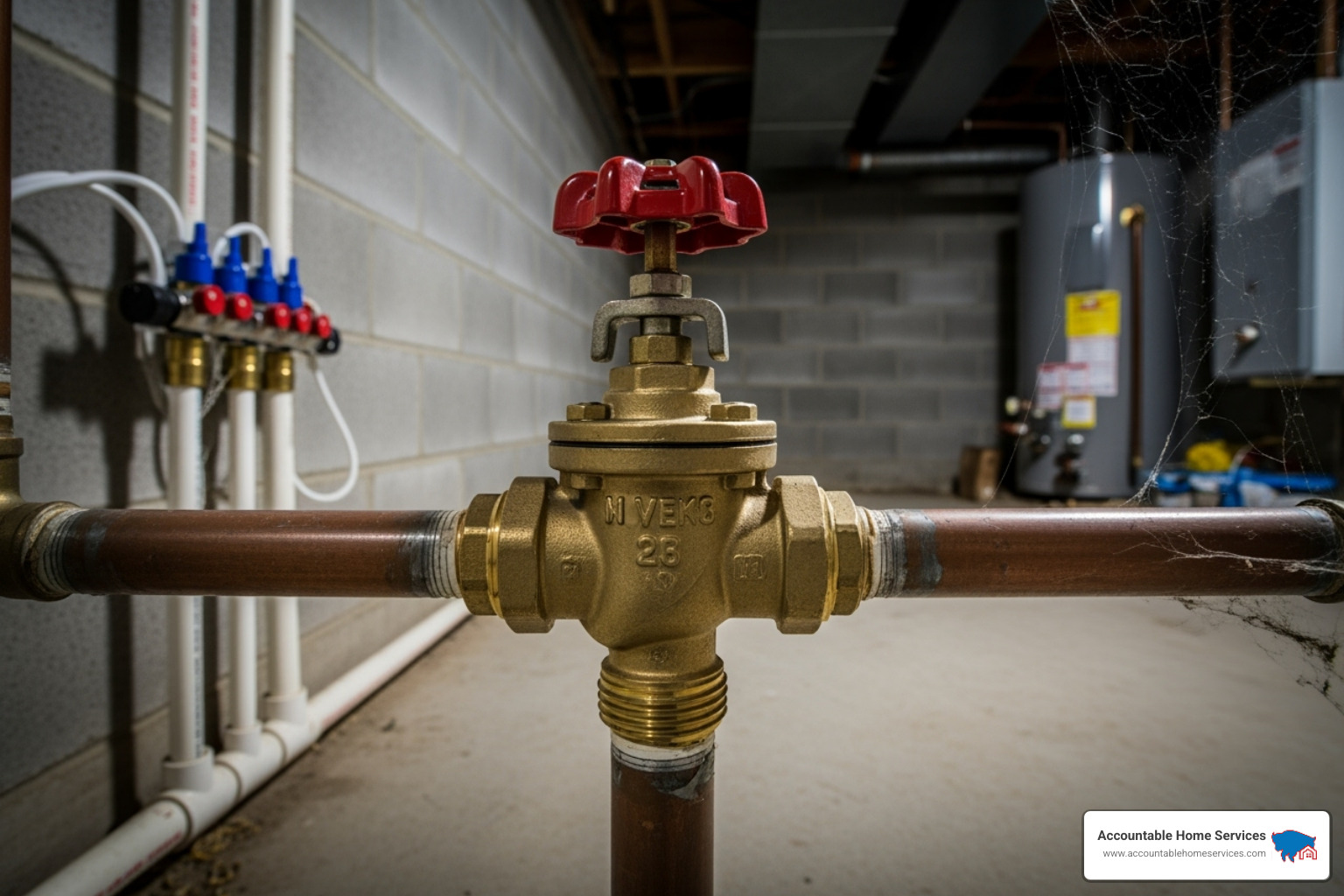
Finding a water leak is stressful, but a clear action plan can mean the difference between a minor inconvenience and a major disaster. Here's what to do.
1. Shut Off the Water Supply Immediately This is the most critical step. If the leak is from a fixture like a sink or toilet, turn the small shut-off valve (usually a knob or lever) behind it clockwise. If you can't find it or the leak is in a wall, you must use the main water shut-off valve. Look for it in your basement(near the front wall), utility closet, or garage. Turn the knob clockwise or the lever a quarter turn until it's perpendicular to the pipe. Pro tip: Test this valve annually so you know where it is and that it works.
2. Prioritize Safety Water and electricity are a deadly mix. If the leak is near outlets or appliances, go to your electrical panel and flip the breaker for that area. When in doubt, shut off the main power. Before handling anything, protect yourself with gloves and safety glasses.
3. Control the Damage
- Catch the Water: Use buckets, pots, or trash cans to collect drips.
- Move Valuables: Quickly move furniture, electronics, and important documents away from the affected area.
- Remove Standing Water: Mop up any puddles immediately. A wet/dry vacuum is excellent for this.
- Ventilate: Open windows and doors to get air circulating, which helps slow mold growth that can start within 24 hours.
4. Document Everything Before you clean up too much, take photos and videos of the leak's source and all damaged areas and items. This evidence is crucial for your insurance claim.
Once you've taken these immediate steps, you've prevented the problem from escalating. Now it's time to call professionals for the permanent water leak repair. For more guidance, see our guide: Damaged by Water? 5 Urgent Steps to Take Now. We're also available 24/7 for emergency water damage restoration in the Denver Metro Area.
A Homeowner's Guide to Temporary Water Leak Repair
After shutting off the water, a well-executed temporary fix can be a lifesaver, stopping the immediate flow until a professional arrives. But let me be clear: these are strictly temporary solutions. They are not a substitute for professional water leak repair.
Safety and Preparation First Before you start, ensure the water supply is off. If the leak is near electrical components, shut off the electricity at the breaker. Wear sturdy gloves and eye protection. The pipe surface must be completely clean and dry for any patch to hold, so wipe away dirt and rust (a wire brush helps) and dry it thoroughly with a rag or hairdryer. If there are sharp edges on a crack, smooth them with a file or sandpaper.
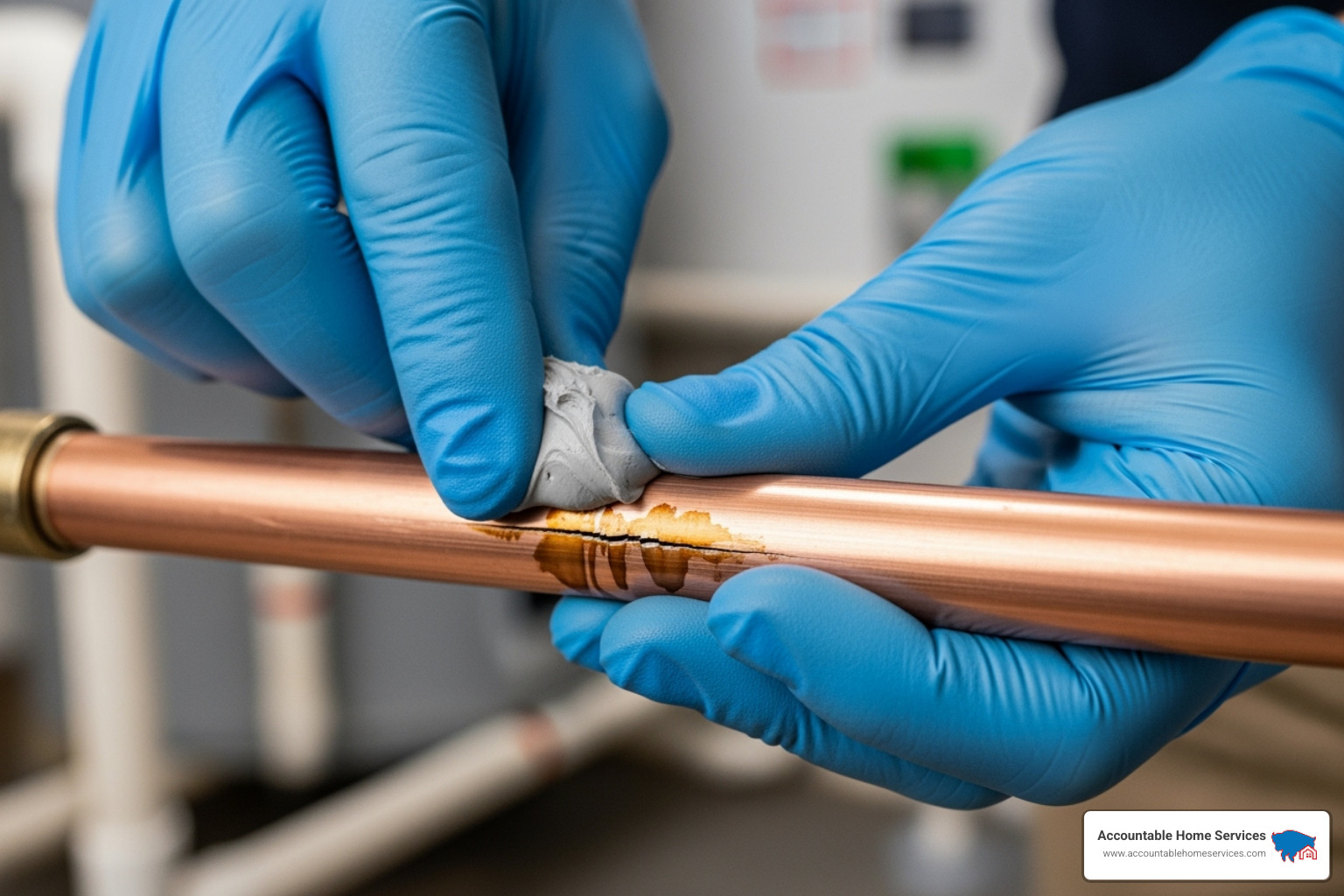
Common methods for temporary water leak repair
Here are three reliable options for a temporary fix:
- Pipe Clamps: These consist of a rubber gasket held in place by a metal clamp. Place the gasket over the leak, wrap the clamp around it, and tighten the screws evenly until the leak stops. Ensure you have the correct size clamp for your pipe's diameter.
- Epoxy Putty: This two-part putty activates when kneaded together. Cut off a piece, knead it with gloved hands until the color is uniform, and then press it firmly over and around the leak. You have about 5-10 minutes to work before it hardens. Let it cure completely as directed on the package.
- Silicone Repair Tape: This self-fusing tape creates a waterproof barrier when stretched. Start wrapping 2-3 inches before the leak, stretching the tape tightly and overlapping each layer by at least half. Continue 2-3 inches past the leak, building up several layers directly over the damaged area.
| Method | Pipe Material Compatibility | Leak Type (Best For) | Key Considerations |
|---|---|---|---|
| Pipe Clamp | Copper, PVC, PEX | Pinhole, Small Crack, Joint | Correct size essential; rubber gasket quality varies. |
| Epoxy Putty | Copper, PVC, PEX | Pinhole, Small Crack, Corrosion | Must be kneaded thoroughly; requires dry, clean surface; cure time. |
| Silicone Tape | Copper, PVC, PEX | Pinhole, Hairline Crack, Small Break | Requires tight, overlapping wraps; self-fuses into solid barrier. |
Testing your temporary water leak repair
Once your patch has cured, it's time to test it. Slowly turn the water back on while listening for any sounds of spraying. Inspect the repair closely for any drips or beads of moisture. Monitor the patch over the next few hours to ensure it holds under pressure.
If it holds, great! You've bought yourself time. But remember, this is a temporary bandage. Schedule a professional water leak repair as soon as possible. For more information on dealing with the aftermath, see our guide on More info about broken pipe water damage.
The Limits of a Quick Fix: When to Call a Professional
That temporary patch you applied has bought you time, not a permanent solution. We've seen many Denver homeowners learn this lesson the hard way. A DIY fix is constantly being tested by your home's water pressure and is at risk of failure.
Why Temporary Repairs Aren't Enough
- Risk of Catastrophic Failure: When temporary patches fail, they often do so suddenly, releasing a large volume of water and turning a small issue into a major flood.
- Hidden Damage: A patch might stop a drip, but a slow seep could continue behind the wall, creating a perfect breeding ground for mold.
- Insurance Implications: If a temporary fix fails and causes extensive damage, your insurance claim could be denied if they determine you didn't take reasonable steps to secure a professional repair.
- Code Compliance: DIY repairs do not meet building codes, which can cause problems when you sell your home.
When to Call a Professional Immediately The answer is simple: as soon as you've contained the emergency. Call us if you have:
- A major burst pipe that you can't control.
- Hidden leaks with signs like musty smells or high water bills, but no obvious source.
- Any leak involving sewer lines or contaminated water, which poses a serious health risk.
Choosing a professional water leak repair provides an expert diagnosis of the root cause, not just the symptom. Our licensed technicians in the Denver Metro Area use high-quality materials to provide permanent solutions that meet all code compliance standards. We use advanced tools for minimal disruption, and our work is backed by a long-term warranty. We also offer insurance coordination to streamline the claims process. Don't let a temporary fix become a permanent headache. For lasting solutions, explore our More info about plumbing services or give us a call.
Smart Home, Safe Home: Preventing Leaks Before They Start
The best water leak repair is the one you never have to make. By combining modern technology with routine maintenance, you can turn your Denver home into a fortress against water damage.
Smart Leak Detectors: Your Early Warning System These small, battery-powered sensors are game-changers. Place them in high-risk areas, and they'll send an alert to your smartphone at the first sign of moisture. Key locations include:
- Under kitchen and bathroom sinks
- Behind toilets and refrigerators with ice makers
- Near your water heater, washing machine, and dishwasher
- In basements, especially around sump pumps
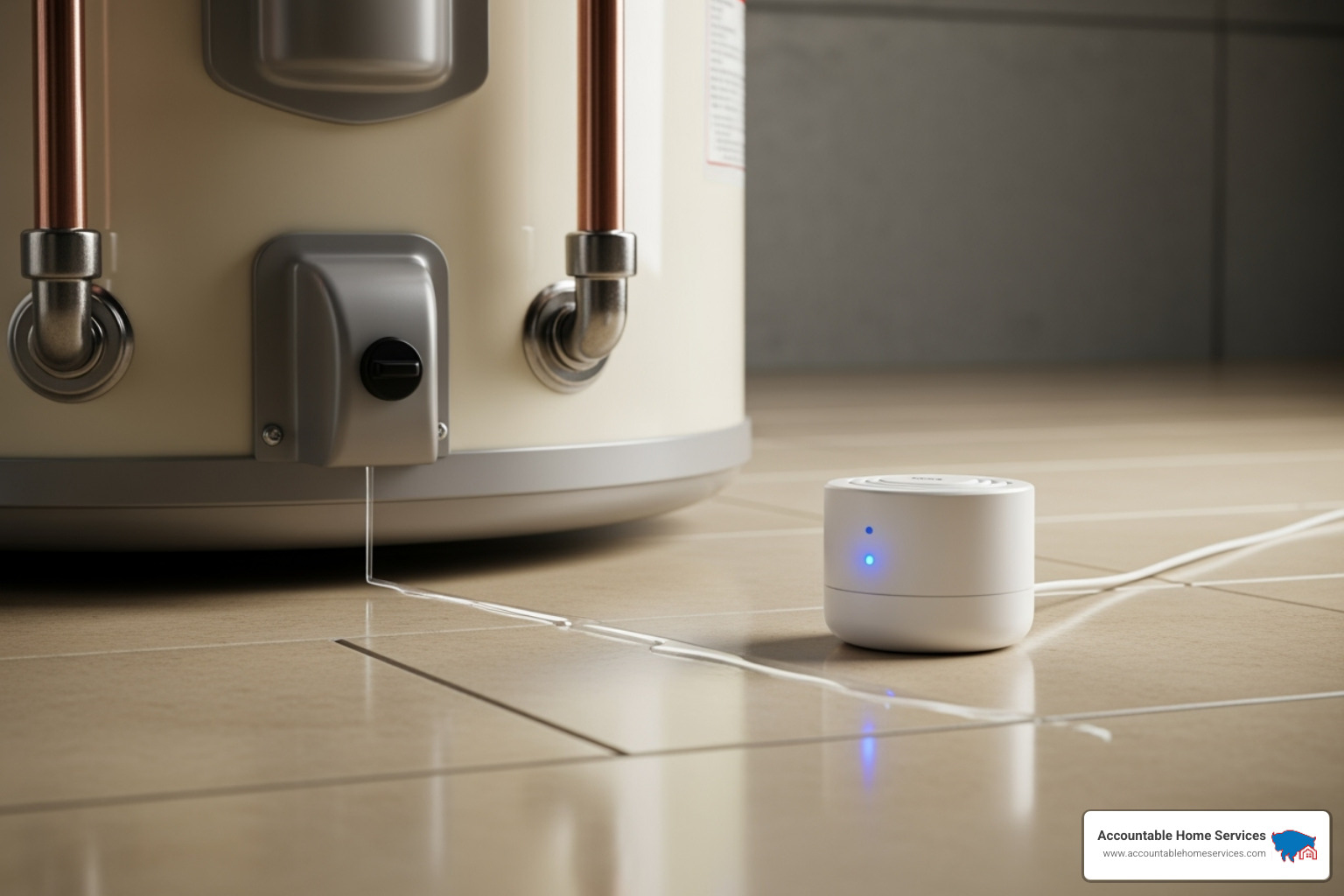
Automatic Shut-Off Valves: The Ultimate Protection These systems take prevention a step further. A main valve is installed on your home's primary water line and connects to a wireless sensor network. If a sensor detects a leak, it signals the main valve to automatically shut off your entire water supply, stopping a disaster in its tracks. This is invaluable for homeowners who travel or own vacation properties. Many systems also let you monitor water usage and control the valve remotely. For more on this technology, see this Information on automated shut-off valves from Sinopé.
Regular Maintenance: The Foundation of Prevention Technology is great, but it doesn't replace basic care. Add these checks to your routine:
- Inspect Appliance Hoses: Check hoses on your washing machine and dishwasher for cracks or bulges. Replace them every 3-5 years, considering durable braided stainless steel hoses.
- Insulate Pipes: In Colorado's cold winters, exposed pipes in basements and garages are at risk of freezing. Use foam pipe insulation to prevent bursts.
- Check Water Pressure: High pressure stresses your plumbing system. A plumber can test it and install a pressure-reducing valve if needed.
- Perform Visual Inspections: Regularly look for moisture, stains, or musty smells under sinks and around appliances.
Combining smart tech with diligent maintenance is the best way to protect your home, health, and peace of mind.
Conclusion: From Drips and Drama to Dry and Dependable
Finding a water leak is overwhelming, but remember this: leaks are serious, but they are manageable with quick action and the right professional support. The key is to act fast, use temporary fixes only as a short-term bridge, and always call a professional for a permanent, reliable solution.
Your immediate response—shutting off the water, ensuring safety, and containing the spread—can save you thousands. A temporary patch buys you time, but it's not a long-term fix.
At Accountable Home Services, we're a family-owned business that understands the stress water damage causes. We've helped countless families across Broomfield, Westminster, Thornton, Northglenn, Arvada, Boulder, Denver, Longmont, and Erie restore their homes and peace of mind.
Our certified technicians use cutting-edge equipment to provide lasting repairs. We're available 24/7 for emergencies and handle direct insurance billing to take that burden off your shoulders. We don't just fix the leak; we provide a comprehensive solution to ensure your home is dry and dependable.
Don't let a drip turn into a disaster. For expert leak detection and comprehensive water leak repair services throughout the Denver Metro Area, contact us today. Your home deserves professional care you can trust.

